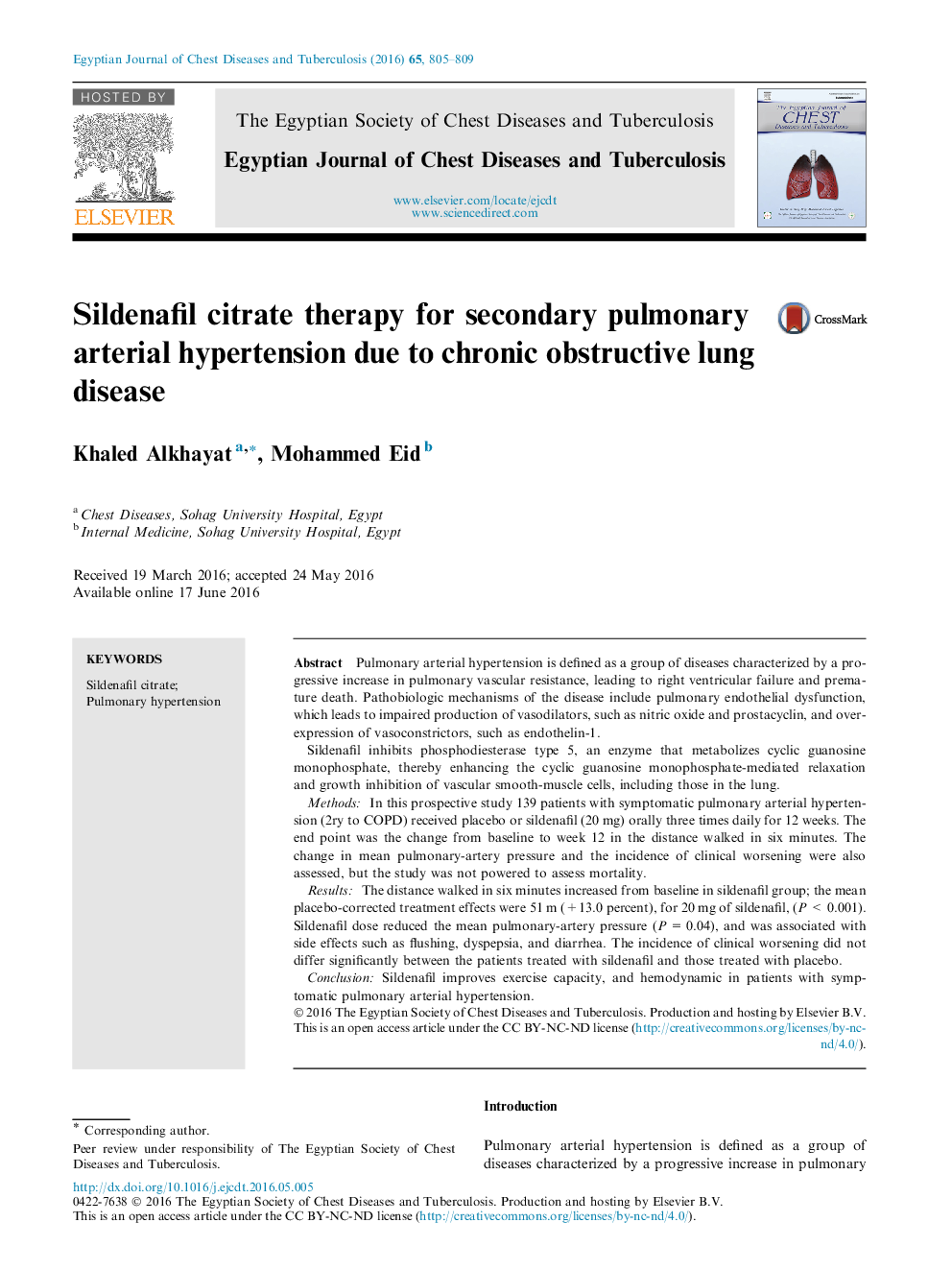| Article ID | Journal | Published Year | Pages | File Type |
|---|---|---|---|---|
| 3399803 | Egyptian Journal of Chest Diseases and Tuberculosis | 2016 | 5 Pages |
Pulmonary arterial hypertension is defined as a group of diseases characterized by a progressive increase in pulmonary vascular resistance, leading to right ventricular failure and premature death. Pathobiologic mechanisms of the disease include pulmonary endothelial dysfunction, which leads to impaired production of vasodilators, such as nitric oxide and prostacyclin, and overexpression of vasoconstrictors, such as endothelin-1.Sildenafil inhibits phosphodiesterase type 5, an enzyme that metabolizes cyclic guanosine monophosphate, thereby enhancing the cyclic guanosine monophosphate-mediated relaxation and growth inhibition of vascular smooth-muscle cells, including those in the lung.MethodsIn this prospective study 139 patients with symptomatic pulmonary arterial hypertension (2ry to COPD) received placebo or sildenafil (20 mg) orally three times daily for 12 weeks. The end point was the change from baseline to week 12 in the distance walked in six minutes. The change in mean pulmonary-artery pressure and the incidence of clinical worsening were also assessed, but the study was not powered to assess mortality.ResultsThe distance walked in six minutes increased from baseline in sildenafil group; the mean placebo-corrected treatment effects were 51 m (+13.0 percent), for 20 mg of sildenafil, (P < 0.001). Sildenafil dose reduced the mean pulmonary-artery pressure (P = 0.04), and was associated with side effects such as flushing, dyspepsia, and diarrhea. The incidence of clinical worsening did not differ significantly between the patients treated with sildenafil and those treated with placebo.ConclusionSildenafil improves exercise capacity, and hemodynamic in patients with symptomatic pulmonary arterial hypertension.
